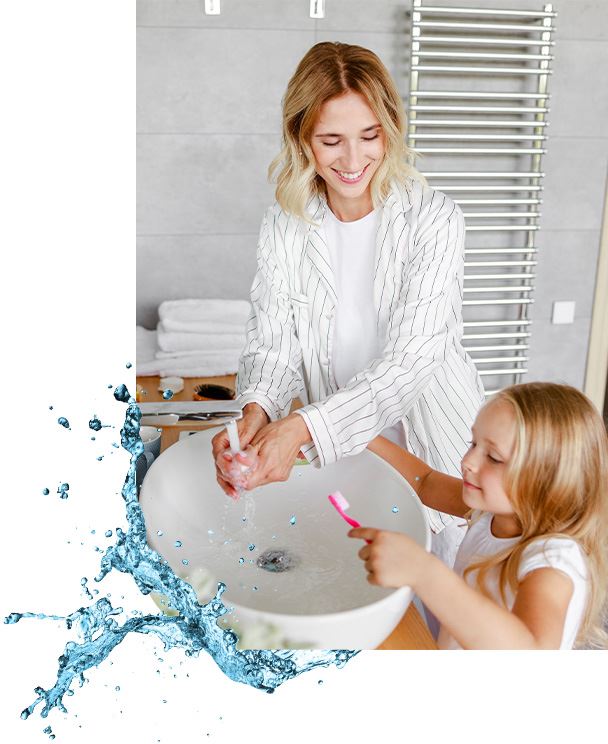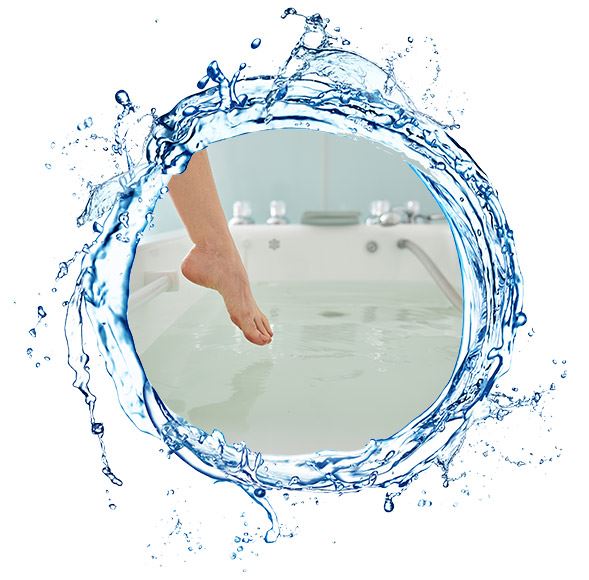
Portland Well Water Testing Services
Keep Your Well Water Safe and Usable in Maine
More than half of Maine homes get their drinking water from private wells. If your home has a well, you bear the responsibility for your home well, like its testing and treating safety hazards. Our water treatment company can handle routine well water testing in Maine to keep your well water clean.
Discover What's in Your Water with Maine Well Testing
You may think that because your water looks and tastes fine, it’s safe, but that’s no guarantee. Invisible and odorless bacteria, viruses, and hazardous chemicals can get into your water supply, making you and your family sick. Therefore, testing your water regularly is the only way to make the invisible and odorless contaminants visible. So when you're ready, give us a call for water testing in Maine!
Did you know that a common odorless and invisible water contaminant in Maine is Arsenic. Arsenic is a naturally occurring chemical found in some rocks and soil. According to Maine’s Division of Environmental and Community Health, 1 in 10 wells in Maine contains arsenic, a known carcinogen. Unfortunately, arsenic isn’t the only health hazard that can be found in private wells. In addition, uranium and radon are commonly found also. Above all, we can not stress enough the importance of testing your well water to truly “see” what is in your water. With our well water testing services in Maine, you won't have to worry about surprise arsenic in your drinking water.
Give our water treatment company a call at (207) 865-8165 or contact us online today to get started with cleaner water.

Why Is Well Water Testing Important?
Well water testing is crucial to ensure the safety and quality of the water you rely on for drinking, cooking, and bathing. Over time, well water can become contaminated with harmful substances such as bacteria, viruses, heavy metals, and chemicals from agricultural runoff or nearby septic systems. Regular testing helps identify these potential hazards, ensuring the water is safe to consume and preventing health risks. Additionally, testing can help detect changes in water quality that may require maintenance or treatment, preserving both your health and the longevity of your well system.
Comprehensive Well Water Contaminant Testing in Maine
Well water testing typically involves checking for a variety of contaminants that could impact the safety and quality of the water. The specific contaminants tested for may vary depending on factors such as location, local regulations, and potential sources of contamination.
Understanding the Benefits of Regular Well Maintenance
Regular maintenance of your well system is crucial for ensuring the longevity and safety of your water supply. Many homeowners overlook the importance of routine checks, which can lead to costly repairs and health risks over time. By scheduling regular maintenance with Fontus Water Treatment, you can prevent potential issues before they escalate.
Key advantages of routine well maintenance include:
- Prolonged Lifespan: Regular inspections and servicing can extend the life of your well system, saving you money in the long run.
- Consistent Water Quality: Ongoing maintenance ensures that your water remains clean and safe for consumption, reducing the risk of contamination.
- Early Detection of Problems: Routine checks allow for the early identification of issues such as pump failure or system leaks, enabling timely repairs.
- Peace of Mind: Knowing that your well is regularly maintained gives you confidence in the safety and reliability of your water supply.
- Increased Property Value: A well-maintained water system can enhance your property's value and appeal to potential buyers.
Don't wait for problems to arise—contact Fontus Water Treatment today to schedule your well maintenance and ensure your water remains safe and reliable for you and your family.

Our Customers Love Us
Read Our Raving Reviews!
-
Really appreciated that they took on our problems as their own and helped us out when we really needed it.- Aaron M.
-
Highly recommend their company for any water service needs! Adam really knew his stuff. Wish we had FONTUS working with us from the start.- Kimberly C.
-
I was impressed he could be there so quickly! He had our problem resolved very quickly! I couldn’t be more happy with them!!!- Jenelle D.
-
Amazing install team!! Highly recommend Fontus! From the on-site review of our water system and all the issues to the recommendations, price and Install team- Cynthia B.
-
From the initial call to the assessment & installation, they were top-notch - prompt, professional & courteous.- Donna R.
-
I 100% recommend Fontus. Work was explained clearly, with no pressure sales tactics, and super quick installation.- Bennet W.
-
The step-by-step plan gave my wife and me the assurance that we would only be purchasing what we needed for our plumbing needs. The attention to detail on installation was impressive, and the customer service throughout the process has been timely and thor- Thomas D.
Get a Free Water Test!
HOW FONTUS CAN TEST YOUR WELL WATER FOR FREE
The experts at FONTUS can test your private well for any of the common hazards. Give FONTUS a call; we’ll be right out to provide a free immediate-response water test.
What is a free immediate-response water test?
An immediate-response water test is a test done onsite, getting your results immediately. This well water test allows us to determine if iron, manganese, hardness, total dissolved solids (TDS), pH, alkalinity, salinity, copper are present in your water. So, before we leave, you’ll have your questions answered and, most importantly, a plan in hand to make sure your water is clean and pure.
Taking control of your water supply is easy. Schedule your free immediate-response water test today. Contact us at (207) 865-8165 or email info@fontush2o.com to speak with the water treatment specialists at FONTUS Water Treatment.
You can trust fontus water treatment to stay by your side
At FONTUS, we’re passionate about water purity. Our water testers in Maine pride ourselves on being reliable, hassle-free, and always available. Most importantly, as the environment and your water change, we’re here to help evaluate your water. Through testing, installation, and maintenance, you can trust FONTUS to ensure clean, pure water for your home or office.


Why Choose Us?
The Choice Is Clear
-
We Highly Value Our Customers & Provide an Excellent Experience
-
Our Focus is You and Your Access to Pure, Clean Water
-
We Guarantee Excellent Service & Longevity In Our Systems

